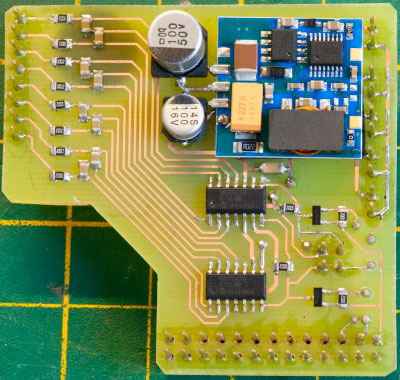 The original plan for the Analog-to-Digital Converter was to use the Dallas 1-Wire system and use the DS2450 1-Wire Quad A/D Converter which was advertised as being a 16-bit device but after buying two of the chips which are around £5 each I found that near the end of the spec PDF they say that “In the shaded areas the accuracy is less than the resolution. The conversion results may include random noise.” This meant that it is really an 8-bit AD converter with the higher quality settings not being reliable.
The original plan for the Analog-to-Digital Converter was to use the Dallas 1-Wire system and use the DS2450 1-Wire Quad A/D Converter which was advertised as being a 16-bit device but after buying two of the chips which are around £5 each I found that near the end of the spec PDF they say that “In the shaded areas the accuracy is less than the resolution. The conversion results may include random noise.” This meant that it is really an 8-bit AD converter with the higher quality settings not being reliable.
Further research found the MCP3428 16-Bit, Multi-Channel Analog-to-Digital Converter with I2C™ Interface and On-Board Reference by Microchip which has 4 input channels and as it communicates via the I2C interface should be a lot faster than the 1-Wire IC’s
The I2C inputs on the Raspberry Pi needed to be buffered so a simple buffer was added to the circuit and the two MCP3428 ICs are set to use different addresses by their address pins.
Each input is connected via a low pass filter to remove any high-frequency noise and this now gives me 8 0-5V ADC inputs with a 16-bit resolution.
We spent today finishing the design and then building the new ADC board for the Raspberry Pi.
The photos below show the build process starting with designing the PCB using Diptrace which allowed us to generate a 3D mockup of the board. The design was then printed onto a transparency and then using a UV light box it was exposed, developed and then etched to produce the finished PCB board.
The 3D mockup in Diptrace
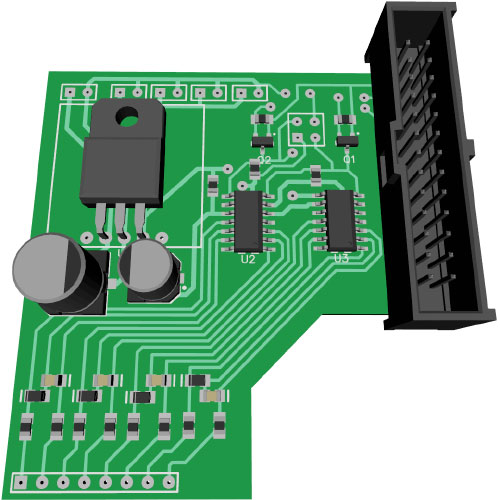
Top view of the completed board with the Arduino style header pins across the top, power input and 5V output on the left and the 8 input pins on the right.
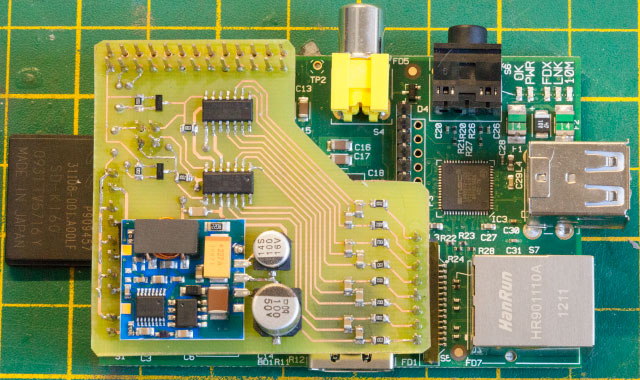
Side view showing the DC-DC power supply. There is a small rubber foot which holds the board off the HDMI socket on the Raspberry Pi
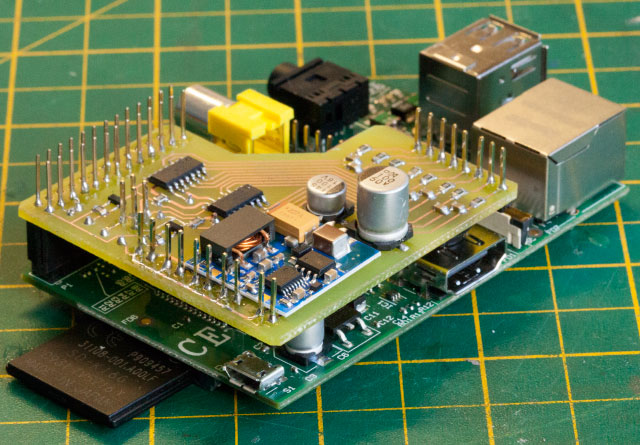
The power for the Raspberry Pi is taken from one of the 4 5V headers across the top of the board and is connected via a modified USB lead.
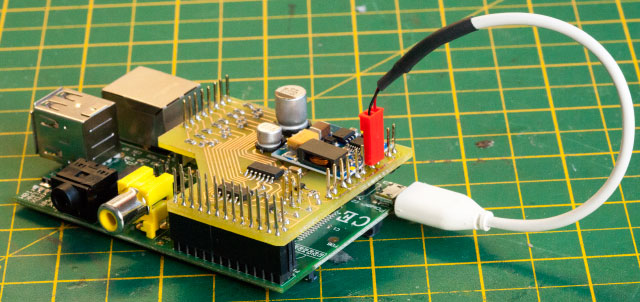
The next stage is software and connecting to the current and voltage sensor feeds!
Download the circuit schematic PDF
Update 21 August 2012
I have been working on prices for building the new version of these boards without the power supply and it looks like they would have to retail for around £15 + postage to make it viable to get 100 initially made.
Please add a comment or send me a message via the contact form if anyone would buy them for this price range as I need to know if it is worthwhile investing over £1000 before I order the parts and spend days building them!
Update 8th September 2012
The PCB's have arrived and we have started to build the new ADC Pi boards which are stackable on the Raspberry Pi. Order yours now from our new shop at https://www.abelectronics.co.uk
Comments